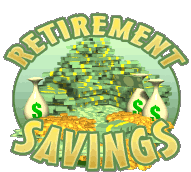| |
|
|
| |

Income and Individual Accountability
Being economically sound is based on one’s ability to create sufficient financial cash flow while simultaneously managing that ongoing income to cover short-term and long term expenditures. One’s personal income can be produced from various sources such as employment, self-employment, retirement funds, investments, etc.
What if we lived in a society where every adult was guaranteed a full time job and offered an income that covered all basic essentials or lived in a society where there is no income required for housing, food, clothing, health insurance and other basic needs? Obviously, America is not such a society, and all able bodied American citizens are expected to pull their own weight. However, it’s not always possible for everyone to do so without assistance from some external source.
Many people who are willing to work lack the qualifications for available positions or do not have access to jobs they are qualified for. Finding the solution begins with determining who is included in the group considered as "able bodied," and continues with determining how to help them develop an income when their "resources" are either limited or seemingly nonexistent.
Yes, we’re all expected to carry our own weight by creating and managing our personal income. However, there is a real challenge in being left without access to any income resources while ordinary expenses continue to exist and accrue. How does one survive under such circumstances? Either one seeks assistance from family members and/or friends, or they apply for assistance from our government if they qualify for it, seek the support of private community agencies or they become homeless and helpless, which produces even more problems for themselves and often for society.
The question has been often asked as to whether the subject of "Economics" should be taught in schools as a required course for all students as a preventive measure against global recessions such as the one America has recently experienced. Unfortunately, many of those who were taught economics did not adhere to the knowledge gained because they were "living in the moment" rather than preparing for their future. Living above one’s means usually has negative consequences, and unexpected job losses can add to that dilemma as well as counteract the efforts of those who were living within their means.
What life lessons should people learn from experiencing unexpected income losses? When there is an economic crisis, everyone must review their own personal financial circumstances and find solutions (including contacting those who can help find solutions) to recouping their losses and tightening their budgets. When there is no crisis, everyone needs to be storing up as much money as possible as though a recession is right around the corner. Those who are already accustomed to living on a budget will grasp this concept much easier than those who are spend thrifts. But life in the slow lane will soon bring them up to par, so to speak.

Click Economics Forum to view other articles on this topic
Click Bronzed Connections to access other forums and topics
Use Buttons to Forward Site to Others in Your Networks
This article published Monday, October 1, 2012
| Politics | Escaping Politics | Barack Obama | Economic Divide and NAACP | Economic Empowerment To Bridge The Gap | Income And Individual Accountability | Government And National Debt Management | Economic Advocates Give Support |
| Education | Entrepreneurs | Employment | Economics | Easements |
| BC Members | BC Newsletter |
| Return Home | PR Services | Bronzed Connections | Owner Profile | Contact Info |
|
|
| |
|
|












